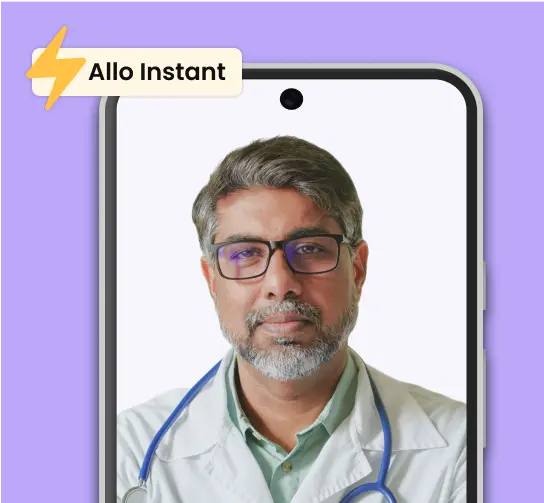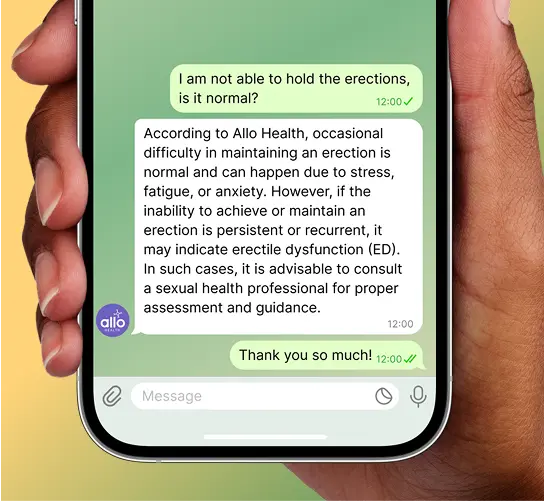Nitric Oxide and Erections: The Complete Guide to Natural ED Treatment
Nitric oxide (NO) plays an important role in achieving and maintaining erections. It’s a natural gas in your body that helps relax blood vessels (pipes carrying blood in the body), allowing blood to flow more easily into the penis during sexual arousal. When NO levels are low, it can be harder to get or keep an erection. This is often the case with age, health issues like diabetes, high blood pressure, and poor lifestyle choices such as smoking. To boost NO, treatments like PDE-5 inhibitors (Viagra, Cialis) can help extend the effects of NO in the body, making them effective for erectile dysfunction (ED). Natural supplements like L-arginine and L-citrulline can support NO production too. In severe cases, advanced treatments like NO donors or gene therapy are being explored. Maintaining a healthy lifestyle, like exercise, diet, and stress management, also helps improve NO levels, supporting both heart and sexual health.
If you’re dealing with erectile dysfunction (ED), you’re not alone, and there is always hope, and no overthinking is required. ED is a completely treatable condition. The link between nitric oxide (NO) and erections is key to understanding why ED happens and how to treat it.
NO is a natural gas molecule that helps control blood flow in your body, including to your penis during sexual arousal. When NO activity drops, often due to age, health problems, or lifestyle choices, ED can occur.
Knowing how nitric oxide works in erections shows why PDE-5 inhibitors work. It also explains why heart diseases and ED often happen together.
This guide will break down the science of nitric oxide and erections in simple terms, so you can understand it easily. Whether you have mild ED or are considering more advanced treatments, knowing how NO affects your sexual health will help you make informed decisions. We’ll cover everything from nitric oxide dosage to the latest research on gene therapy, with the care and respect you deserve.
What is Nitric Oxide?
If you’re dealing with erectile dysfunction, you’ve probably heard about nitric oxide (NO), and for a good reason. This simple gas molecule is like your body’s natural “switch ON” for erections. Don’t worry, it’s not as complicated as it sounds.
Your body creates NO using special enzymes, kind of like little factories working in different parts of your body. The main types of these enzymes are:
There are three main types:
- Neuronal NOS (nNOS): Found in nerves, helping signal your brain and blood vessels.
- Endothelial NOS (eNOS): Works in the blood vessels, keeping them relaxed and open for blood flow.
- Inducible NOS (iNOS): Active during certain situations, like inflammation. Inflammation is the body’s protective response to harmful stimuli like pathogens, damaged cells, or irritants
Scientists called NO an endothelium-derived relaxing factor before they figured out what it was. This molecule helps your blood vessels relax and open up, kind of like loosening a tight belt.
When it comes to sexual function, NO is very important. Without enough of it, getting and keeping an erection becomes tough.
How Nitric Oxide Controls Erections
Nitric oxide (NO) and erections work together perfectly. When you get sexually aroused, your brain sends signals through special nerves, called cavernous nerves, all the way to your penis.
These nerves release NO into the corpora cavernosa. The corpora cavernosa are the two chambers in the penis that fill with blood during an erection.
NO activates an enzyme called guanylate cyclase. Don’t worry about the fancy name, it does something very simple. It raises cyclic GMP (cGMP) levels inside the penis muscle cells.
Think of cGMP like a ‘relaxation signal’ for the muscles in your blood vessels and penis. When the muscles relax, it’s like opening the gates to allow more blood to flow in, which helps you get a firm erection.
The cGMP process also lowers calcium in the muscle cells.
With less calcium, the muscles stay relaxed for longer, which is exactly what you need for a firm erection. This relaxation happens in both the vascular smooth muscle (in your blood vessels) and the corporal smooth muscle (in the penis).
Neuronal NO synthase (nNOS) starts the process. Endothelial NOS (eNOS) keeps it going. eNOS reacts to blood flow and pressure changes. It acts like a feedback system that keeps blood flowing smoothly.
The Link Between Nitric Oxide and Erectile Dysfunction
Most cases of erectile dysfunction happen because your body can’t produce enough nitric oxide (NO). Without enough NO, it’s hard to get or keep an erection.
- There are many reasons why NO production can be reduced. Some are just part of life, like getting older. As you age, your body naturally makes less NO. Chronic medical conditions like diabetes can also mess with NO production. Chronic medical conditions are something that has been with you for many years.
- High blood pressure can damage the blood vessels that make NO, and conditions like heart disease and cardiovascular disease often go hand-in-hand with ED. Why? Because they both have the same root cause: poor blood flow.
- Things like a bad diet, not exercising, and smoking all lower NO levels. I know it’s not easy to hear, but making some changes can help improve things.
- Performance anxiety creates a cycle that makes everything worse. Stress blocks the natural process, and the stress of not performing can lead to more stress. Plus, neurological or psychological issues can stop your brain from sending the signals needed to start NO production in the first place.
62% of men under 35 with ED had anxiety-related symptoms: Anxiety can increase stress hormones that negatively affect NO production, leading to poorer erectile health.
It’s understandable when things aren’t working the way they used to. But don’t worry, there are plenty of solutions available, and you’re not alone in this.
Current ED Treatments That Target Nitric Oxide
1. PDE-5 Inhibitors: Your First Line of Defense
PDE-5 inhibitors, or phosphodiesterase type 5, are the go-to treatments for ED.
These medications like
- Viagra (sildenafil)
- Cialis (tadalafil)
- Levitra (vardenafil)
These medications help protect your erection nitric oxide pathway from breaking down too fast.
PDE-5 inhibitors, like Viagra and Cialis, work by blocking an enzyme called phosphodiesterase type 5 (PDE-5). This enzyme normally breaks down a molecule called cGMP, the substance that helps keep the smooth muscles in your penis relaxed so blood can flow in and create an erection.
By stopping PDE-5, these medications help maintain higher levels of cGMP, which supports stronger, longer-lasting erections. But there’s a catch: they don’t create nitric oxide (NO), they just protect the pathway it activates. That means your body still needs to produce some baseline NO for these medications to work properly.
If your NO levels are already low due to age, lifestyle, or medical conditions, the effects of PDE-5 inhibitors might be limited. Combining these treatments with healthy habits that boost nitric oxide, like exercise, a better diet, and stress control, can make them work better.
2. Natural Supplements: Supporting Your Sexual Function
While prescription medications like PDE-5 inhibitors (Viagra, Cialis, etc.) can help, remember that lifestyle changes can make a big difference too. Making healthier choices like eating better, exercising, and managing stress can support your body’s natural ability to produce nitric oxide, which in turn helps medications work even better.
If you’re looking for natural options, L-arginine is one of them. It’s an amino acid that helps your body produce nitric oxide. Some men find L-arginine supplements useful for improving erectile health, though the research is mixed.
L-citrulline is a type of amino acid, and it might help improve blood flow and reduce blood pressure. Your body turns L-citrulline into L-arginine more easily, and studies show it can improve erection in men with mild ED.
Erectile dysfunction is often a sign that something deeper is going on in the body, like poor blood flow or hormonal imbalances. Nitric oxide plays a crucial role in maintaining the smooth function of blood vessels, and improving its production can help restore erectile health. Simple lifestyle changes, combined with the right treatments, can make a real difference in your sexual well-being.
Don’t forget about your diet. Dark leafy greens like spinach, arugula, and kale are full of nitrates, which your body turns into NO. While it’s not a quick fix, eating these foods regularly can help support your body’s natural NO production.
So, a healthy diet and supplements like L-citrulline could give your erection nitric oxide pathway a boost.
3. Advanced NO-Based Therapies and Erectile Dysfunction
For men who don’t respond to regular treatments, there are some new options available. NO donors like sodium nitroprusside deliver NO directly to the tissues.
Isosorbide mononitrate is another type of nitric oxide donor being studied. Guanylate cyclase activators work differently from PDE-5 inhibitors. They raise cGMP levels directly without needing nitric oxide first.
Researchers are also making progress with gene therapy. The goal is to restore normal NO synthase function for men who don’t respond to other treatments. It’s still experimental, but the future looks promising.
So, if standard treatments don’t work, there are new and developing options that might help improve erectile health in the future.
Nitric Oxide Boosters and Erections- L-arginine and L-citrulline
If you want to try nitric oxide boosters for ED, common supplements are L-arginine and L-citrulline. These amino acids help your body make nitric oxide naturally. Nitric oxide improves blood flow, which is key to getting and keeping erections.
If you’re thinking about trying supplements like L-arginine or L-citrulline, it’s a good idea to start slow and pay attention to how your body responds. Keep in mind, results vary for each person. It’s also a good idea to talk to your doctor before starting any new supplement to make sure it fits with your overall health plan.
Tip: Take note of how you feel and talk to a healthcare provider before starting anything new. They can help you avoid side effects and ensure the supplement won’t interfere with any existing medications or health conditions.
Note: If you have heart problems or take medication for blood pressure, certain nitric oxide supplements may not be safe. Always check with your doctor first.
Combining Supplements with Prescription Medications for Boosting Nitric Oxide Production and Erections
If you use prescription ED drugs like Viagra, Cialis, or Levitra, follow your doctor’s instructions carefully.
These medications work differently by protecting the nitric oxide pathway once it’s activated.
Lifestyle changes and natural supplements may help these medications work better. It’s really important to follow your doctor’s guidance when combining treatments. Your healthcare provider will help you find the best balance and make sure everything is safe and effective for you. Your doctor knows how to balance safety with effectiveness based on your health history.
Reminder: More isn’t always better. Stick to prescribed guidelines, and don’t self-adjust doses without guidance.
Why Your Cardiologist Cares About Your Erections
Erectile dysfunction (ED) can be a red flag for heart problems. Both ED and cardiovascular disease share common causes, mainly poor blood flow. When your blood isn’t flowing well, it affects both your heart and your penis.
Ischaemic heart disease happens when narrowed arteries reduce blood to the heart muscle. This lowers nitric oxide in your body. Nitric oxide is needed for proper blood flow. High cholesterol, diabetes, and smoking damage both your heart and penis blood vessels in similar ways. The European Society of Cardiology sees ED as an early warning for heart disease.
If you have ED, it can be a sign that your heart might need attention, too. The good news is that improving your nitric oxide levels through lifestyle changes, medication, and regular checkups can improve both your sexual health and heart health. So, it’s a great opportunity to take charge and improve your overall well-being.
Improving NO function can benefit both your erectile and heart health. Regular exercise, which boosts NO levels, is key. Also, managing blood pressure helps protect the cells that make NO and can prevent long-term damage.
Mechanical Solutions for ED
If medications aren’t helping, don’t lose hope. Vacuum device therapy can help when other treatments fail. A vacuum erection device creates a pressure to draw blood into your penis. These devices work regardless of your NO levels.
Penile implant surgery offers a permanent fix for severe ED. This option works for men who can’t produce enough NO naturally. Success rates are high, though, like any surgery, it carries risks worth discussing with your doctor.
These mechanical solutions can work even when medications and lifestyle changes haven’t helped enough. While they might feel intimidating at first, they have high success rates, and many men find them to be a long-term solution when other options aren’t working.
The Future of ED Treatment
Gene therapy research is exploring a potential cure for ED by restoring NO synthase function at the cellular level. Scientists are testing ways to inject healthy genes directly into penile tissue, which could fix the problem at its root. Although this is still in the experimental stage, the early results are promising.
Researchers are also studying guanylate cyclase inhibitor compounds to better understand the cGMP pathway. This helps them find new drug targets, leading to better and more effective treatments for ED.
Researchers are making exciting strides, and while treatments like gene therapy are still in the experimental phase, there’s a lot of hope for the future. The goal is to restore your body’s natural nitric oxide function, so you can live a fulfilling life without ED interfering.
The following blog article provides general information and insights on various topics. However, it is important to note that the information presented is not intended as professional advice in any specific field or area. The content of this blog is for general educational and informational purposes only.
Book consultation
The content should not be interpreted as endorsement, recommendation, or guarantee of any product, service, or information mentioned. Readers are solely responsible for the decisions and actions they take based on the information provided in this blog. It is essential to exercise individual judgment, critical thinking, and personal responsibility when applying or implementing any information or suggestions discussed in the blog.




